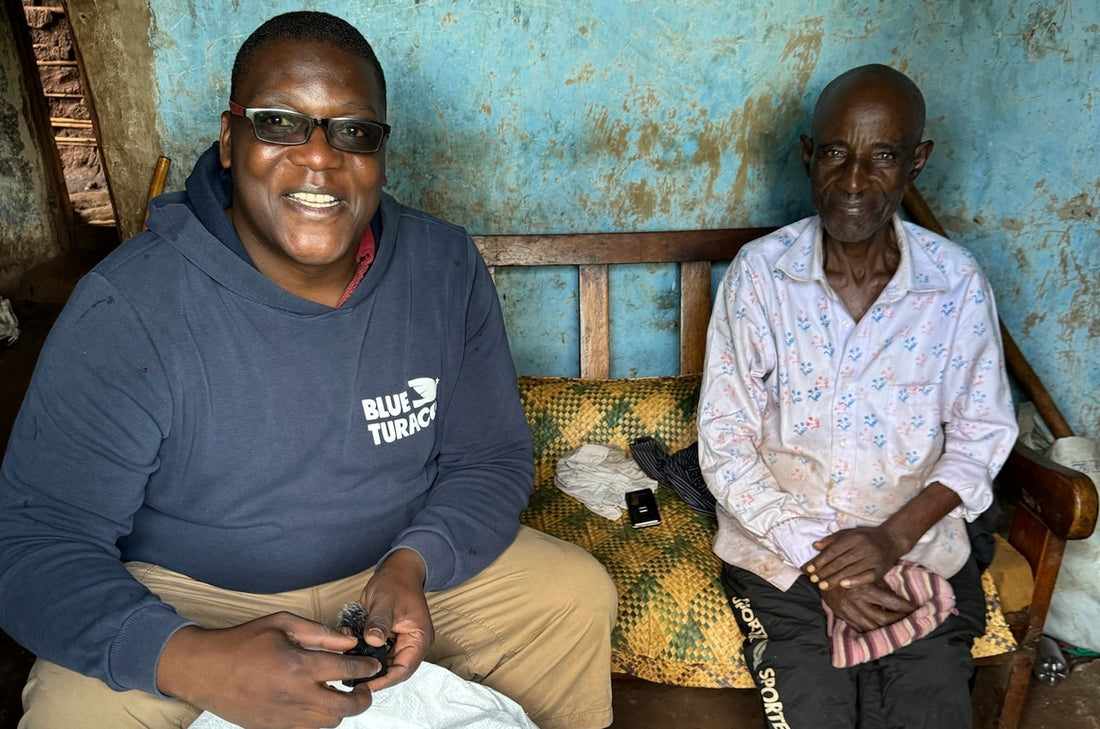A lot of coffee is grown on big, commercial coffee farms but 90% of the world’s coffee is grown by smallholder farmers - farmers around 1 hectare of private land. Even the big coffee brands with the big commercial farms rely on coffee from smallholder farmers.
In Uganda, 1.8 million households grow coffee. Imagine that! Lots and lots of hardworking coffee farmers growing coffee on lots and lots of small coffee fields.
They are the backbone of the country’s economy - coffee is Uganda's third biggest export. But because coffee is often bought through middlemen (up to 5 layers of them) the smallholder farmer is often out of sight and working for way less than deserved.
We’re changing that!
Learn more about what this means in our interview with our founder Wycliffe...
What’s significant about 90% of Ugandan coffee being grown by smallholder farmers?
"This is significant because it shows that the backbone of Uganda's coffee industry is made up of hardworking smallholder farmers. These farmers, with approximately 1 hectare of private land each, play a vital role in shaping the country's coffee sector and economy."
Do big brands buy from smallholder farmers?
"The coffee industry is dominated by some large coffee businesses buying significant quantities of coffee, and large commercial farms exist, but it's often the smallholder farmers who supply a considerable portion of the beans. Even coffee purchased by big players frequently originates from these smallholder farmers. Their contribution to the industry is indispensable, highlighting their importance in the coffee supply chain."
Tell us about the coffee supply chain and the layers of middlemen
"There are often up to 5 layers of intermediaries involved in the coffee buying process. This multi-level middlemen system in the coffee trade often means that smallholder farmers are invisible and very disconnected from the market. This can hinder their ability to negotiate fair prices and access resources and support."
What particular challenges are Robusta smallholder farmers facing?
"40% of the world’s coffee is Robusta and this number is growing all the time. But Robuta has been undervalued, grown at scale at low quality and fetching lower prices. This means farmers have little leverage to negotiate the prices they need. But if their coffees are more visible and better known, they will be able to negotiate on their prices much more easily. This is why our focus on High quality in Robusta and specialty robusta coffee production is so important."
What’s different about how Blue Turaco Coffee works with smallholder farmers?
"Well, we are farmers ourselves first. As a smallholder coffee farmer, I grow coffee alongside other smallholder farmers.
We are facing the very same problems faced by smallholder farmers ourselves. We maintain close relationships with our fellow farmers, always just a call or text message away.
Through our direct engagement and collaboration, we work closely with many smallholder farmers, ensuring their voices are heard and their contributions recognized.
We pride ourselves on being one of the very few African-owned coffee brands in the UK and the first to be smallholder farmer-founded.
Have you tried it yet? Let’s go!"


